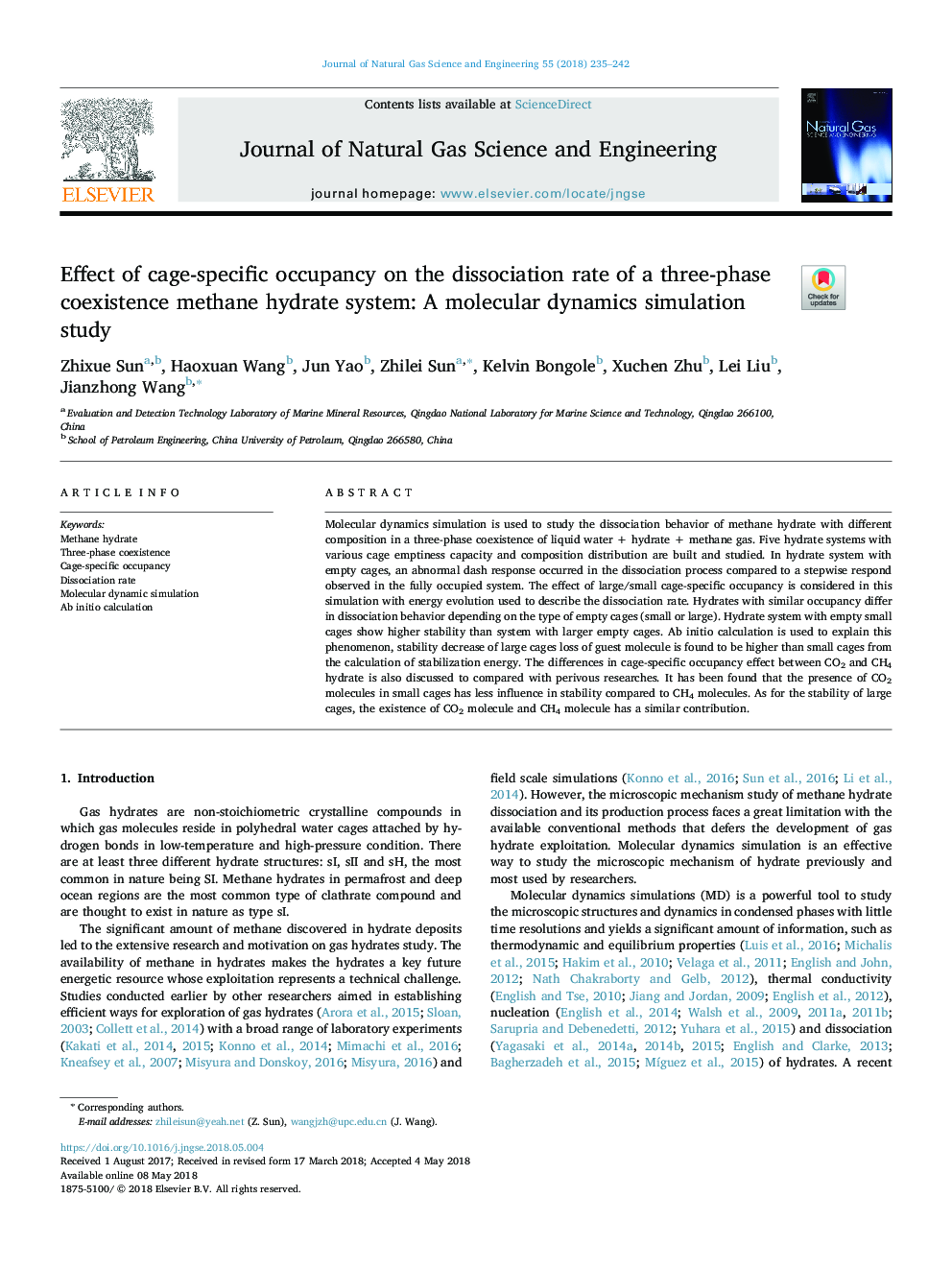| Article ID | Journal | Published Year | Pages | File Type |
|---|---|---|---|---|
| 8127970 | Journal of Natural Gas Science and Engineering | 2018 | 8 Pages |
Abstract
Molecular dynamics simulation is used to study the dissociation behavior of methane hydrate with different composition in a three-phase coexistence of liquid water + hydrate + methane gas. Five hydrate systems with various cage emptiness capacity and composition distribution are built and studied. In hydrate system with empty cages, an abnormal dash response occurred in the dissociation process compared to a stepwise respond observed in the fully occupied system. The effect of large/small cage-specific occupancy is considered in this simulation with energy evolution used to describe the dissociation rate. Hydrates with similar occupancy differ in dissociation behavior depending on the type of empty cages (small or large). Hydrate system with empty small cages show higher stability than system with larger empty cages. Ab initio calculation is used to explain this phenomenon, stability decrease of large cages loss of guest molecule is found to be higher than small cages from the calculation of stabilization energy. The differences in cage-specific occupancy effect between CO2 and CH4 hydrate is also discussed to compared with perivous researches. It has been found that the presence of CO2 molecules in small cages has less influence in stability compared to CH4 molecules. As for the stability of large cages, the existence of CO2 molecule and CH4 molecule has a similar contribution.
Related Topics
Physical Sciences and Engineering
Earth and Planetary Sciences
Earth and Planetary Sciences (General)
Authors
Zhixue Sun, Haoxuan Wang, Jun Yao, Zhilei Sun, Kelvin Bongole, Xuchen Zhu, Lei Liu, Jianzhong Wang,
